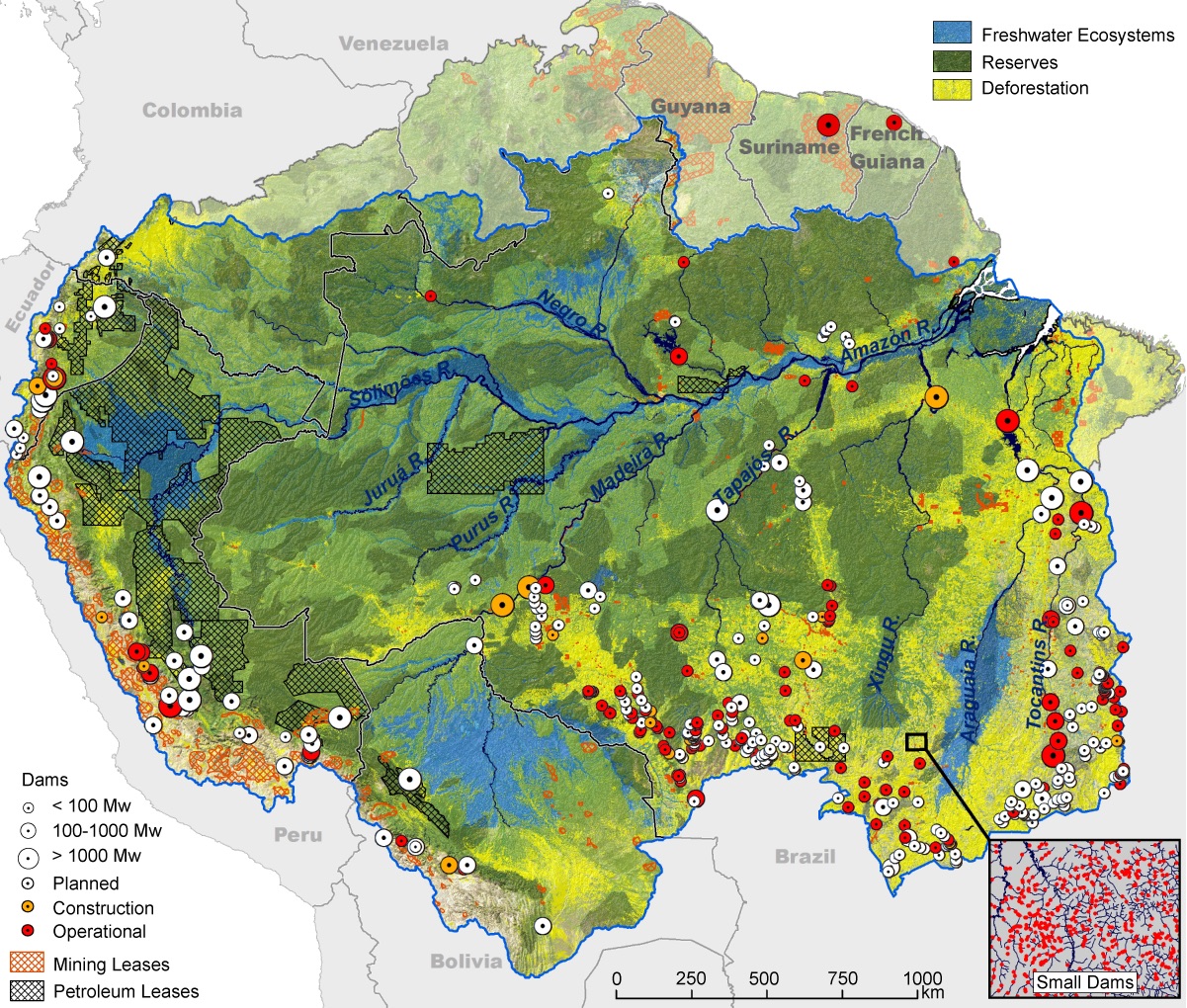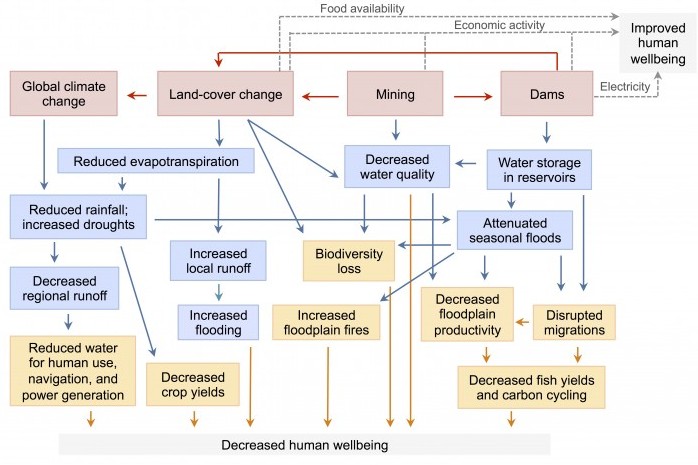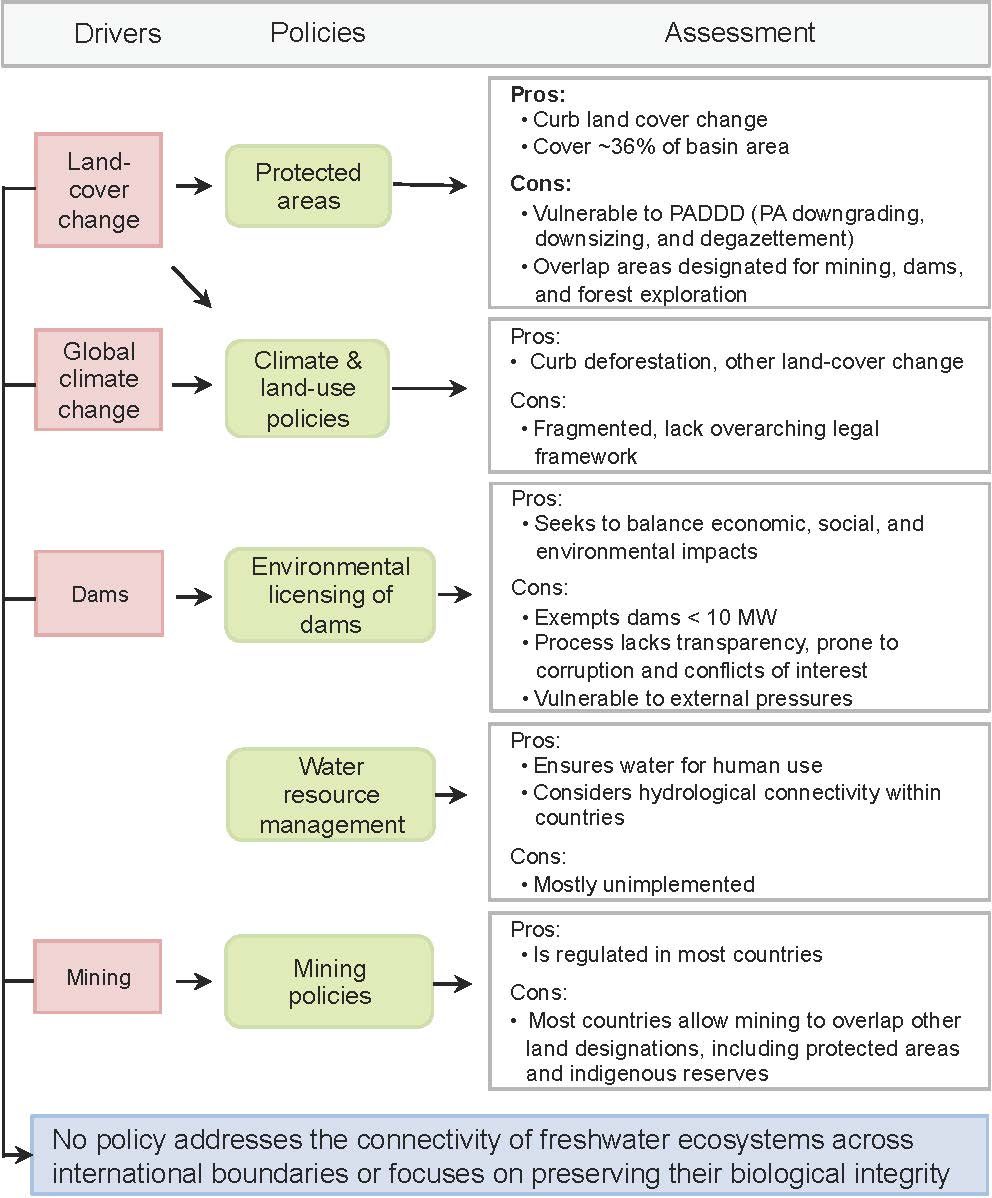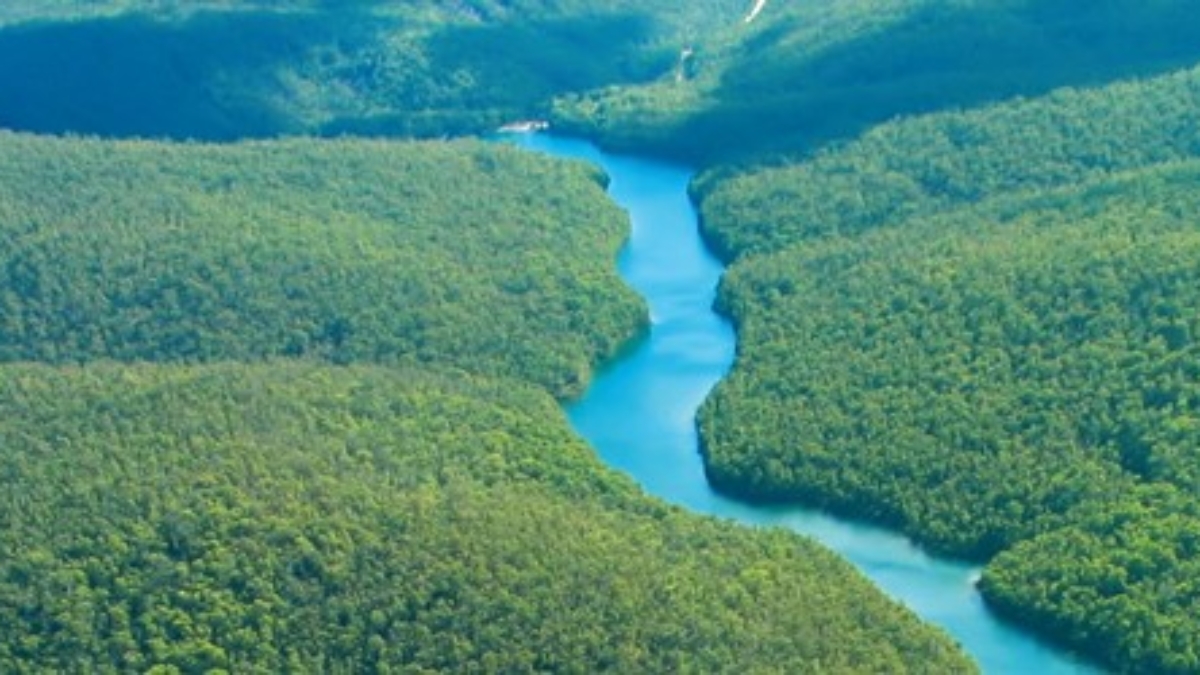Hydrological connectivity regulates the structure and function of Amazonian freshwater ecosystems and the provisioning of services that sustain local populations. This hydrological connectivity of Amazonian freshwater ecosystems is increasingly disrupted by construction of dams, mining, land-cover changes, and global climate change. This review analyzes these drivers of degradation; evaluates their impacts on hydrological connectivity; and identifies policy deficiencies that hinder freshwater ecosystem protection.

There are 155 large there will be only three free-flowing tributaries if all 277 planned dams for the Basin are built. Land-cover changes driven by mining, dam and road construction, and agriculture and cattle ranching have already affected ~20% of the Basin and up to ~50% of riparian forests in some regions. Global climate change will likely exacerbate these impacts by creating warmer and dryer conditions, with less predictable rainfall and more extreme events (e.g. droughts and floods).

The resulting hydrological alterations are rapidly degrading freshwater ecosystems both independently and via complex feedbacks and synergistic interactions. The ecosystem impacts include biodiversity loss, warmer stream temperatures, stronger and more frequent floodplain fires, and changes to biogeochemical cycles, transport of organic and inorganic materials, and freshwater community structure and function. The impacts also include reductions in water quality, fish yields, and availability of water for navigation, power generation, and human use.

This degradation of Amazonian freshwater ecosystems cannot be curbed presently because existing policies are inconsistent across the Basin, ignore cumulative effects, and do not consider the hydrological connectivity of freshwater ecosystems. Maintaining the integrity of these freshwater ecosystems requires a basin-wide research and policy framework to understand and manage hydrological connectivity across multiple spatial scales and jurisdictional boundaries.
More information:
Castello, L., Macedo, M.N. 2016. Large-scale degradation of Amazonian freshwater ecosystems. Global Change Biology. doi: 10.1111/gcb.13173 pdf

